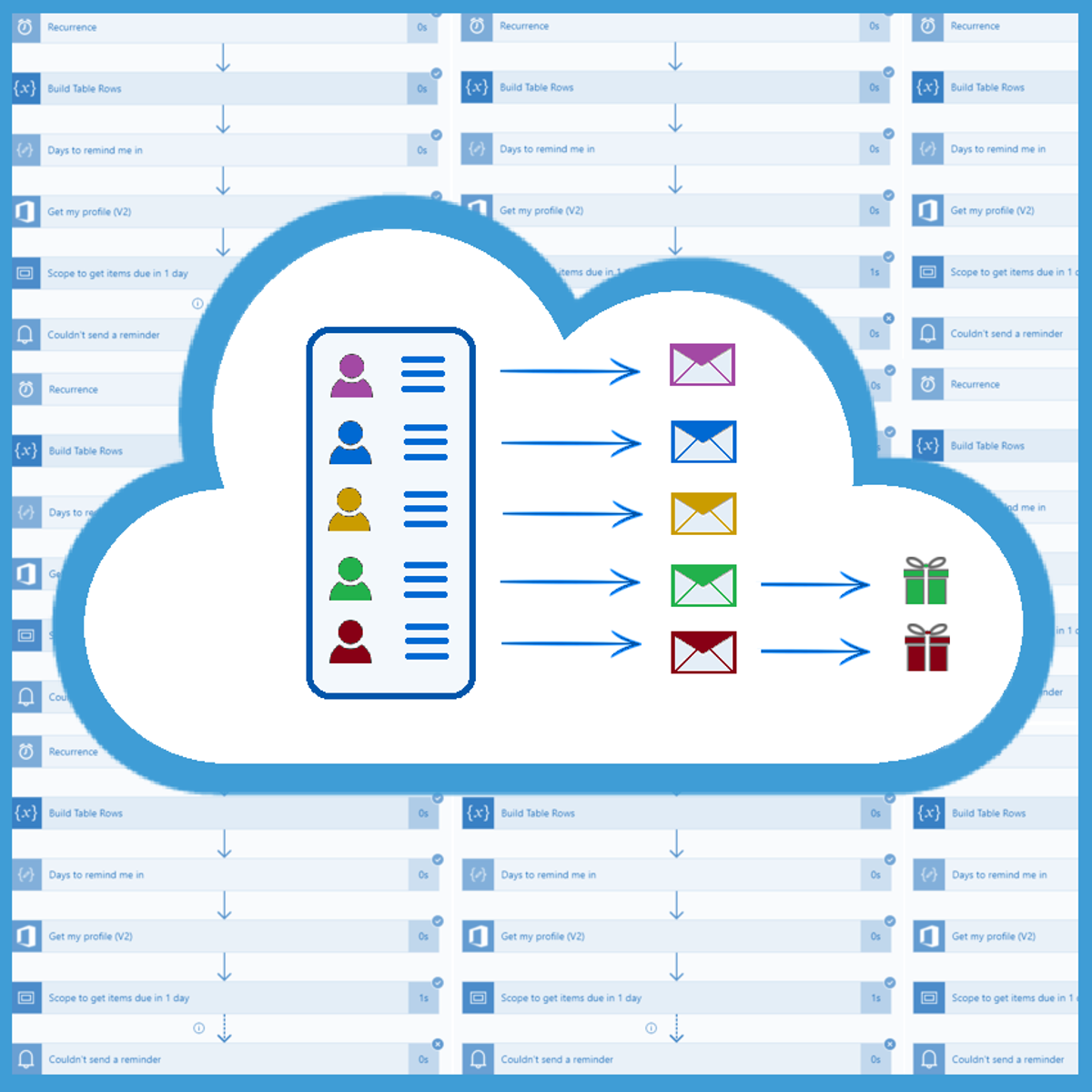Back to Courses









Business Essentials Courses - Page 17
Showing results 161-170 of 645

The hidden value – Lean in manufacturing and services
Lean is a powerful methodology that enables managers and employees to shift their mindset and helps companies to keep their business sustainable by creating competitive advantage. Today, in an increasingly complex and dynamic world, where companies struggle to maintain competitive advantage, Lean is more important than ever.
This course combines the experience of many senior experts and practitioners from the Boston Consulting Group and École des Ponts, and brings perspectives on Lean in manufacturing and services. It offers strong topic foundation as well as deep practical insights into the art of continuous improvement.
In this course, you will learn:
- why Lean is a key driver for sustainable competitive advantage
- how different companies can leverage Lean to create value both in manufacturing and services
- what it takes to drive a Lean transformation and build a culture of continuous improvement
- how new technologies impact traditional lean practices

Data calculations in Microsoft Excel
By the end of this project, you will create a free account on Microsoft 365, will get access to Microsoft Excel, you will create a table with data that you will later be able to manipulate to calculate sums, average amounts, percentages, and also calculate with certain criteria. Your new skills will help you efficiently manipulate data and operate with formulas that can help make more efficient management decisions in the future.

Financial Management for Product Leaders
This course is for aspiring or active product leaders who wants to understand how to secure and manage funding for their activities. We will demystify key accounting and financing concepts to give product leaders a guide to developing the business case for their ideas, and securing funding to translate ideas into reality.
This course focuses on four key areas:
• Learning the fundamentals and how to create financial statements for new ventures within the corporate environment;
• Examining valuation techniques for understanding how to assess and grow the value of the corporate venture;
• Exploring the different sources of internal and external financing for the corporate venture; and
• Applying lessons learned in the course to structure a funding deal and pitch the corporate venture.

Automize Business Communication using Power Automate
Imagine you're organizing a fundraising event. After the event, it is necessary to send thank-you notes to donors, but donations are hard to track since they arrive before, during and after the event, and manually sending emails to each donor would take too long.
Thankfully, such manual and repetitive business processes are easy to automate, and this guided project, “Automize Business Communication using Power Automate” is for any business professional who is looking to automate any similar business task.
With Power Automate, you will create a flow that can be triggered every time someone makes a donation. When you press Run, the flow will display a form with certain fields that have to be populated, such as name, e-mail, address, donation amount (or any other information we need about the donor). When the event ends, we will have a list of all the people who made donations in an Excel table. Then you will make another flow that will send thank-you notes to each donor on the list. After that, the flow will single out the people who donated the largest amounts and forward that list to the manager who can then send them a special thank-you note or a small gift.
The requirement for taking this project is to have a free Microsoft account, but if you don’t have it, you can create one in just a few clicks (notes on how-to are included in this project). Since this project uses Power Automate (part of the Microsoft Power Platform), you will also need access to a free Microsoft 365 Developer Program subscription. In the first task you will be given instructions on how to sign up for it!
Anyone can learn to use Power Automate regardless of their educational background! If you would like to make your life easier by automating manual, time-consuming business tasks which are hard to track, then this project is for you! Let's get started!

Business English: Capstone Project
The capstone project will give you opportunities to demonstrate your competence in the learning objectives for this Specialization. For the project, you’ll use formal, written methods and more casual visual and audio methods of communication to demonstrate your ability to use language appropriate for different business contexts. The goal of this course is to demonstrate competence in writing and presenting a plan using skills and language appropriate for business.
Course Learning Objectives
• Use appropriate vocabulary to write a mini business plan
• Communicate a business plan orally in an organized and engaging presentation

The Control Phase for the 6 σ Black Belt
This course is designed for professionals interested in learning the principles of Lean Sigma, the DMAIC process and DFSS. This course is number 7 of 8 in this specialization dealing with topics in the Control Phase of Six Sigma
Professionals with some completed coursework in statistics and a desire to drive continuous improvement within their organizations would find this course and the others in this specialization appealing.
Method of assessment consists of several formative and summative quizzes and a multi-part peer reviewed project completion regiment.

Reports, Dashboards, and Customer Success in Salesforce
The fourth course in the Salesforce Sales Operations Professional Certificate — Reports, Dashboards, and Customer Success in Salesforce — is for anyone who is curious about entry level sales roles that require foundational skills in Salesforce, the sales operations specialist role specifically, how to use tools in Salesforce to improve customer service at a business, how to leverage data in Salesforce to improve the overall performance of a sales team, and the path to becoming a Salesforce administrator.
This fourth course goes into more depth on how a sales operations specialist would use Salesforce Service Cloud to support a variety of different customer service needs. You will learn the basics of effective customer support, and you will leverage a variety of new tools available in the Salesforce Service Cloud to effectively manage customer relationships.
This course also goes into more depth on how a sales ops specialist would use Salesforce Reports and Dashboards to support a variety of needs from a sales team manager to track, improve, and forecast the overall performance of a sales team. You will learn how to use filters to produce custom reports in Salesforce, and then discover how to visualize that data effectively through the use of charts and dashboards.
For this course, it is recommended (but not required) that you have some background knowledge of sales and CRM, as well as an understanding of the basics of Salesforce platform navigation. If you're a total beginner with these concepts, you can still be successful in this course — however, it might require some additional work on your part.
By enrolling in this course, you are taking the next step to kickstarting your career in Salesforce. Congratulations on continuing this exciting journey!
Set Up a Clockify Workspace
In this project, you will set up a workspace in Clockify to track billable hours for a small business. Clockify is a great free software for time tracking and generating reports. It will help your business stay organized and prepare for future growth.
Note: This course works best for learners who are based in the North American region. We’re currently working on providing the same experience in other regions.

Forecasting Skills: See the Future Before it Happens
For many people, the future comes as a surprise – or even a shock. But with strong forecasting skills, YOU can avoid future shock. You can adapt faster, and become better prepared to benefit from change.
In this course, you’ll build your future forecasting skills. You'll learn how to turn groups of "signals" (clues about the future) and "drivers" (global forces that influence the direction of change) into compelling future forecasts. Forecasts help you discover new possibilities and opportunities for yourself, your company, or any community you want to inspire to make a better future.
You'll also learn how to write future scenarios. Scenarios take forecasts one step further. They spark imagination and tell a story about what might happen if a forecast comes true. Scenarios help you evaluate: Is this a future I'm ready for? Is this a future I want?
Leading futurists from the Institute for the Future will show you exactly how it's done. They'll share with you the forecasts and scenarios they’re most excited about right now, and walk you through the key steps they took to create them. Then, it's your turn! You'll create a forecast and a scenario on any future topic you choose.
How will you benefit from taking this course? With strong forecasting skills, you'll get better at seeing the future before it happens. You'll be ready to consider possibilities that others never see coming or refuse to accept. You'll be able to help others prepare for and adapt to the future. You can decide which futures you want to make more likely, and which futures you want to prevent.
Many thanks to the Enlight Foundation and the Enlight Collaborative, which provided a grant to support the creation of this course.

European Business Law: Competing in Europe
About this Course
This six-week course titled Competing in Europe is the third in a series of three exploring some of the main business aspects of European Union law. Besides providing learners with a sound knowledge base of European laws and regulations, the series explores business considerations within a broader perspective by including inputs from leading law practitioners in the field. More specifically, the third course discusses how to compete on the internal market and protect your brand, product or invention. It includes legal disciplines such as Intellectual Property law (IP law), Competition law and specific branches within Public law, such as public procurement and state aid.
At the end of this course, you will have a basic understanding of how to:
• Find and understand relevant laws and regulations governing the internal European Union market
• Protect and defend a company’s products, brands and inventions by obtaining and licensing trademarks and patents
• Create a competitive edge for a company and apply the basic principles of EU competition law
• Construct and present a persuasive legal argument
About the Series
The Lund series in European Business Law ranges from considering the basic structures and principles of the European Union to focusing on specialized areas of European Union law. The first course, Understanding the Fundamentals, examines the core structures and principles of the European Union. The second course, Doing Business in Europe, examines legal areas such as Company law, Labour law, Tax law, Environmental law and Private International law, and how they tie in to doing business in Europe. All three courses can be taken independently or in sequence depending on your needs and preferences.
To keep up to speed on the course series, visit our Facebook page at:
https://www.facebook.com/eblmooc/
Syllabus and Format
Each course consists of a number of modules where one module represents about one week of work. A module includes a number of lectures and readings, and finishes with an assessment – a quiz or a peer graded assignment. The assessments are intended to encourage learning and ensure that you understand the material of the course. Participating in forum discussions is voluntary.
Course I - Understanding the Fundamentals
Module 1. Introduction
Module 2. Legal Method and Sources
Module 3. Constitutional Freedoms and Fundamental principles
Module 4. Enforcement of EU Law and Judicial Review
Module 5. Freedom of Movement
Module 6. The External Dimension
Course II - Doing Business in Europe
Module 1. Making Business Transactions
Module 2. Establishing a Company
Module 3. Employing and Working in Europe
Module 4. Paying Taxes and Complying with Environmental Standards
Module 5. Resolving Cross-border Disputes
Module 6. Case Clinic
Course III - Competing in Europe
Module 1. Obtaining Trademarks
Module 2. Defending Patents
Module 3. Competition: Illegal Agreements
Module 4. Competition: Abuse of Dominance and Mergers
Module 5. Selling to the State and State Aid
Module 6. Advocacy and Legal Writing
Lund University
Lund University was founded in 1666 and has for a number of years been ranked among the world’s top 100 universities. The University has 47 700 students and 7 500 staff based in Lund, Sweden. Lund University unites tradition with a modern, dynamic, and highly international profile. With eight different faculties and numerous research centers and specialized institutes, Lund is the strongest research university in Sweden and one of Scandinavia's largest institutions for education and research. The university annually attracts a large number of international students and offers a wide range of courses and programmes taught in English.
The Faculty of Law is one of Lund University’s four original faculties, dating back to 1666. It is a modern faculty with an international profile, welcoming both international and Swedish students. Education, research and interaction with the surrounding community are the main focus of the Faculty’s work. The connection between the three is particularly apparent in the programmes and courses offered by the university, including the university’s MOOC course in European Business Law. The students get the chance to engross themselves in traditional legal studies, while interacting with both researchers and professionally active lawyers with qualifications and experience from various areas of law.
The faculty offers three international Masters: two 2-year Master’s programmes in International Human Rights Law and European Business Law, and a 1-year Master’s in European and International Tax Law. Students from around 40 countries take part in the programmes which offer a unique subject specialization within each field, with highly qualified researchers and professional legal practitioners engaged in the teaching.
The Master’s programme in European Business Law provides an in-depth understanding of both the practical and the theoretical aspects of business law within the European Union. The programme provides both general and specific knowledge of the European Union legal framework, which is necessary for students intending to work as legal advisors or business decision-makers. The programme is delivered in English and is open to students with at least a three year degree in Law (Bachelor, LL.B, or equivalent) who want to specialise in European economic and business law.
The MOOC course in European Business Law is a great course to start with for students intending to apply for the Master’s programme in European Business Law. Even though the MOOC course does not grant credits previous knowledge of the subject is considered upon admission to the master’s programme. For more information about the Master’s programme in European Business Law see https://www.law.lu.se/#!meb
Popular Internships and Jobs by Categories
Find Jobs & Internships
Browse
© 2024 BoostGrad | All rights reserved